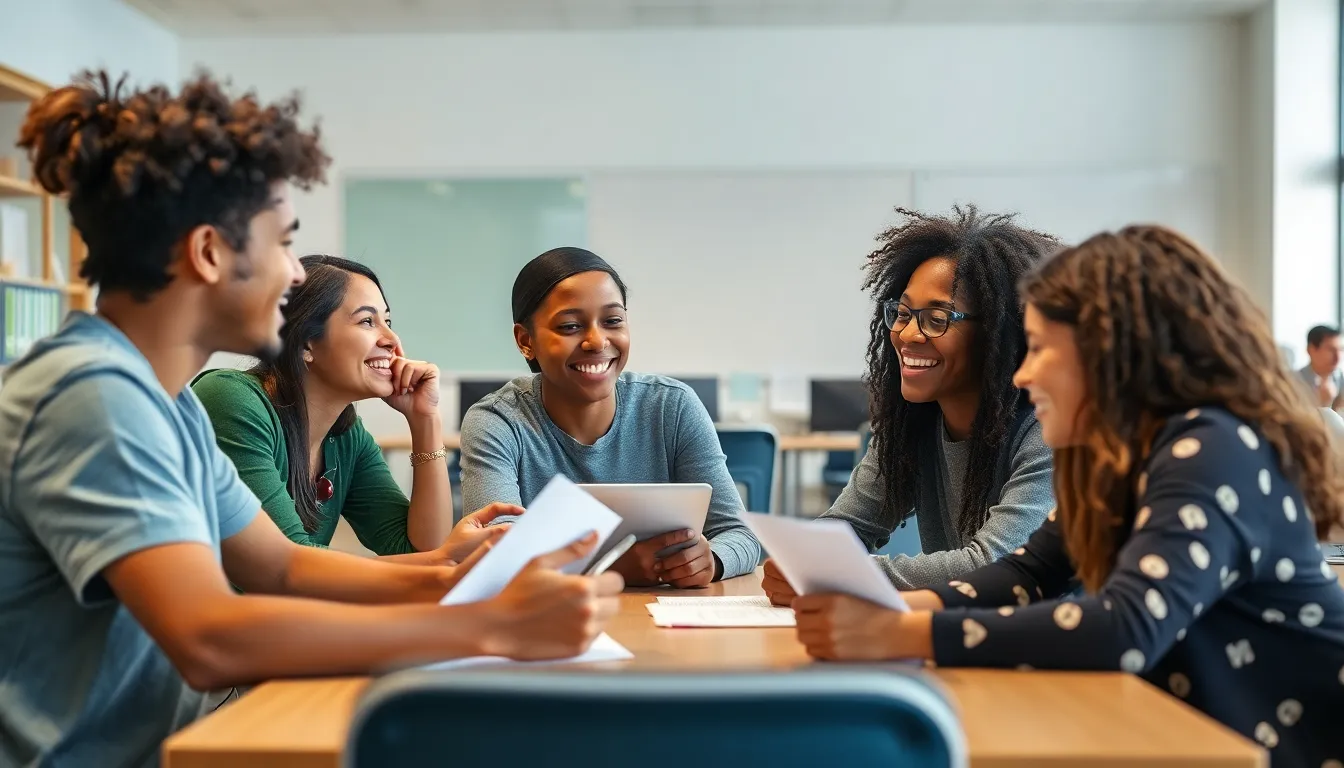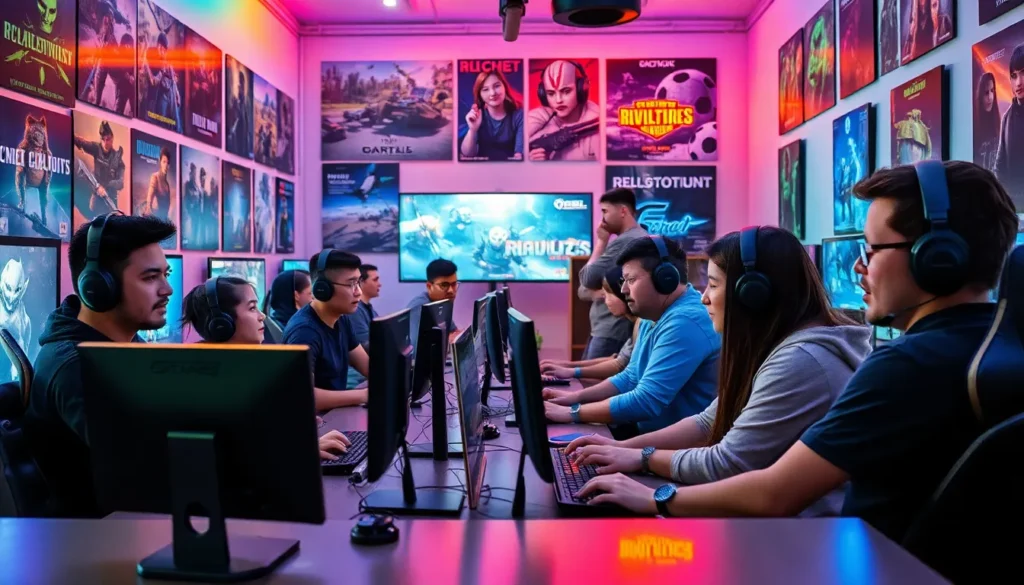Table of Contents
ToggleIn a world buzzing with distractions, effective learning can feel like trying to find a needle in a haystack—while blindfolded. But fear not! Mastering the art of learning doesn’t require a magic wand or a PhD in wizardry. It’s all about understanding how the brain ticks and harnessing that knowledge to make learning stick like your favorite song on repeat.
Understanding Effective Learning
Effective learning involves utilizing strategies that enhance knowledge acquisition and retention. By understanding certain principles, individuals can transform their learning experiences into more productive ones.
Definition of Effective Learning
Effective learning refers to approaches that maximize comprehension and retention of information. It encompasses various techniques, such as active engagement, critical thinking, and practical application. Methods that include spaced repetition and elaborative interrogation significantly boost memory. Learners employing self-test strategies and providing immediate feedback often excel above traditional study techniques. Recognizing triggers that aid memory recall further defines effective learning.
Importance of Effective Learning
Effective learning plays a crucial role in personal and professional development. It increases the ability to assimilate complex information efficiently. Engaging in effective learning methods results in better performance in academic and workplace settings. High retention rates correlate with successful outcomes, including academic excellence and improved job skills. Individuals who prioritize effective learning not only grasp concepts more thoroughly but also experience heightened motivation. These learners often adapt to new challenges more readily, ensuring ongoing growth and learning adaptability.
Key Principles of Effective Learning

Understanding the principles of effective learning can significantly enhance retention and comprehension. Implementing strategies aligned with these principles enables individuals to optimize their learning experiences.
Active Engagement
Active engagement enhances learning by encouraging participation. Methods like group discussions and hands-on projects spark interest and promote deeper understanding. Tackling real-world problems in a collaborative setting builds critical thinking skills. Research shows that engagement correlates with higher retention rates, as learners connect new information to their experiences. Immersive activities, such as simulations or role-playing, facilitate a memorable learning experience.
Feedback and Assessment
Feedback and assessment play crucial roles in effective learning. Regular feedback informs learners about their progress, helping identify strengths and weaknesses. Timely assessments can guide adjustments in study habits or focus areas. Constructive criticism fosters growth and inspires motivation to improve. Data from educational studies indicates that frequent testing leads to better retention compared to sporadic evaluations. Continuous assessment helps learners adapt their strategies, ensuring a more robust understanding of content.
Strategies for Effective Learning
Effective learning involves various strategies that facilitate understanding and retention. Implementing these approaches can significantly enhance one’s educational experience.
Collaborative Learning Techniques
Engagement with peers fosters deeper understanding. Group discussions allow individuals to share diverse perspectives and clarify complex concepts. Team projects encourage collaboration, promoting critical thinking and problem-solving skills. Additionally, peer teaching reinforces knowledge, as explaining concepts to others aids retention. Utilizing these collaborative techniques creates a supportive learning environment that enhances motivation and accountability.
Use of Technology in Learning
Incorporating technology into educational practices optimizes learning experiences. Online resources offer access to a multitude of information, enriching learning. Educational apps support personalized learning through interactive content and quizzes. Virtual classrooms enable remote collaboration and diverse learning opportunities. Moreover, technology facilitates tracking progress and provides immediate feedback, enhancing the effectiveness of learning strategies.
Challenges to Effective Learning
Effective learning faces numerous challenges that can hinder growth. Distractions, lack of motivation, and inadequate learning environments pose common issues.
Common Barriers
Distractions include technology, noise, and environmental factors that disrupt focus. They often lead to reduced attention spans, affecting information retention. Lack of motivation can stem from negative attitudes towards learning. Learners may feel overwhelmed, resulting in procrastination and disengagement. Inadequate resources, such as insufficient access to materials or technology, limit opportunities for effective learning experiences. These common barriers create significant roadblocks that learners encounter daily.
Overcoming Obstacles
Eliminating distractions promotes a more conducive learning environment. Establishing a dedicated study space enhances concentration and reduces interruptions. Setting clear goals fosters motivation and encourages a sense of achievement. Utilizing various learning resources can enrich experiences and keep learners engaged. Collaborative methods, such as group discussions and peer teaching, facilitate understanding and provide support. Seeking feedback helps identify areas for improvement, guiding learners through obstacles. Adopting these strategies enables individuals to navigate the challenges to effective learning successfully.
Effective learning isn’t just a goal; it’s a journey that anyone can embark on. By embracing the principles outlined and implementing the strategies discussed, individuals can transform their learning experiences. The ability to adapt and thrive in various environments enhances personal and professional growth.
As distractions and challenges persist, prioritizing effective learning becomes essential. Whether through active engagement or leveraging technology, the path to mastery is within reach. With commitment and the right approach, learners can unlock their potential and achieve lasting success.




